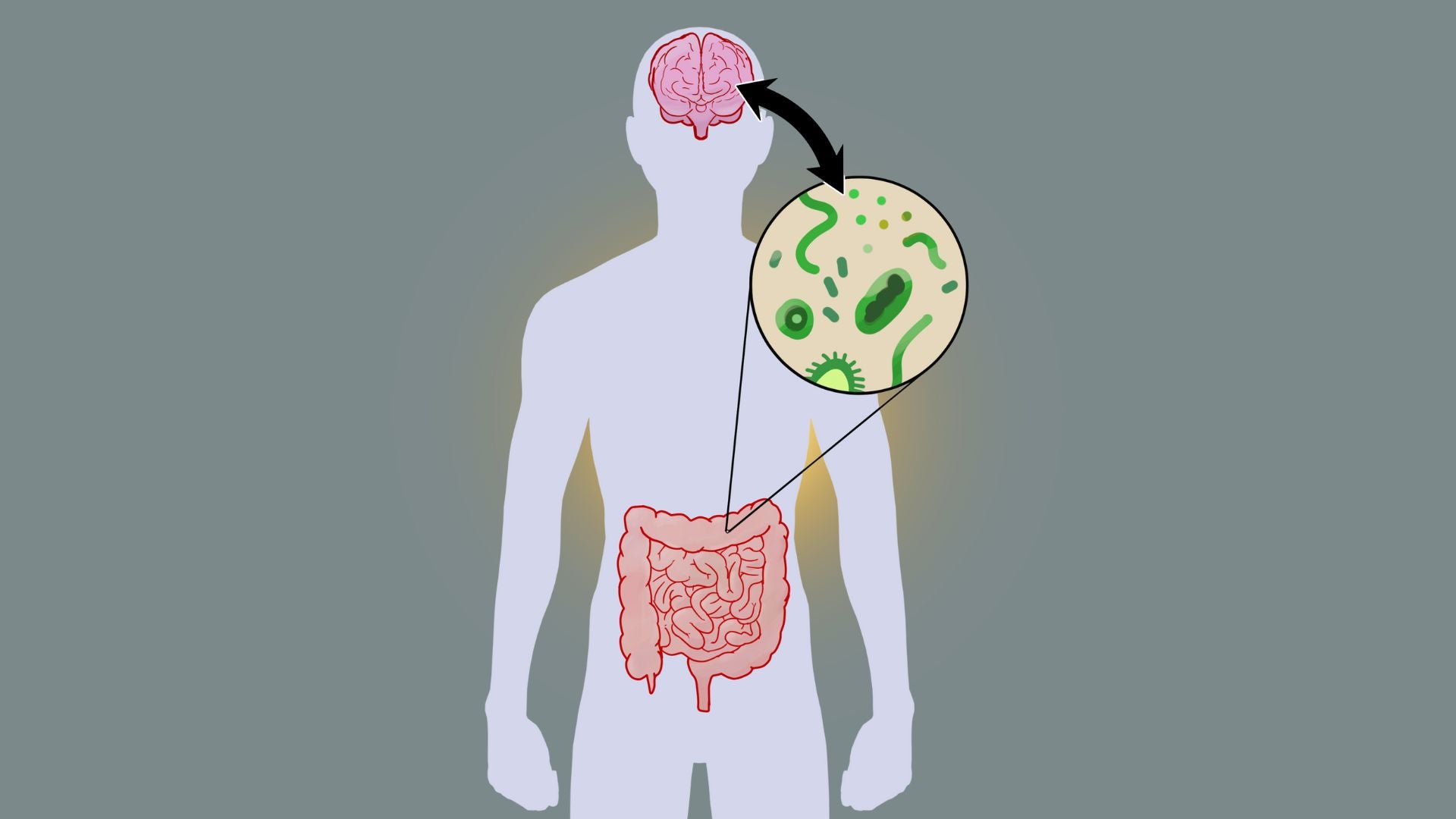Gut Health & Mental Health: A Holistic Approach to a Happier Gut and Mind
In our modern world, understanding the intricate and complex relationship between gut health and mental well-being is more important than ever. Often referred to as the "mind-gut connection," or “brain-gut axis,” this dynamic emphasizes how a healthy gastrointestinal biome can profoundly influence our mental state, impacting everything from mood swings to cognitive functions. In understanding how your microbiome can improve both your digestive and mental health, we can move towards a more balanced and healthy life. Let’s dive into learning the power of your microbiome!
Understanding the Gut-Brain Connection
The gut-brain or mind-gut connection refers to the complex, bidirectional communication network that links the central and the enteric nervous systems, connecting the emotional and cognitive centers of the brain with peripheral intestinal functions. This relationship is crucial for maintaining overall health and well-being. It helps to clear your brain and mood.
Biological Pathways of the Gut-Brain Axis
This connection is facilitated through multiple pathways including neural, hormonal, and immune mechanisms, which together help maintain homeostasis and respond to environmental changes.
- Neural Communication: The most direct pathway for gut-brain communication is through the vagus nerve, which extends from the brainstem to the abdomen. It is one of the major nerves involved in parasympathetic control, often called the "rest and digest" system. The vagus nerve sends signals in both directions—from the brain to the gut and from the gut to the brain—allowing for quick responses to gut stimuli.
- Hormonal Signaling: The gut produces over 20 different hormones that can influence brain function. These hormones help regulate appetite, digestion, and feelings of fullness or satiety.
- Immune Route: The gut-associated lymphoid tissue (GALT) plays a crucial role in the immune system by identifying and reacting to pathogens while communicating with the brain through cytokines.
- Microbiota-Gut-Brain Axis: The gut microbiota communicates with the brain through metabolites and microbial products such as short-chain fatty acids, which can affect brain behavior.
The Vagus Nerve: Central to the Gut-Brain Communication
The vagus nerve (which has been gaining a lot of attention lately) is pivotal in gut-brain interactions. The vagus is a major player in our parasympethic nervous system which is the part of the nervous controls our rest and digest. It controls basic gut functions and sends sensory information from the gut to the brain. This includes not just mechanical and chemical signals but also signals initiated by the gut microbiota. Its impact on health includes:
- Digestive Regulation: The vagus nerve controls the pace at which the stomach empties and manages the release of digestive enzymes.
- Mood and Emotional Well-being: By transmitting information from the gut to the brain, the vagus nerve can influence emotional tones and stress responses.
- Inflammation Control: The "cholinergic anti-inflammatory pathway" stimulated by the vagus nerve can reduce inflammation throughout the body.
Enhancing Gut Health: Holistic Strategies
Improving gut health requires a multifaceted approach, integrating diet, exercise, stress management, sleep quality, and careful attention to environmental influences, including light exposure.
- Optimizing Diet for Gut Health
A nutritious, diverse diet is foundational for nurturing a healthy gut microbiome. Foods rich in prebiotics such as garlic, onions, and leeks help nourish beneficial bacteria, while probiotic-rich foods like kefir and sauerkraut enhance gut flora. It's also crucial to minimize intake of refined sugars and heavily processed foods, which can promote the growth of harmful bacteria and lead to gut dysbiosis. Integrating a variety of whole, unprocessed foods can significantly improve the overall health of your gut microbiome, leading to better digestion and absorption of nutrients.
The cutlery you use while eating matters too. Hot liquids in paper cups can leech harmful chemicals into your drinks. Styrofoam takeout containers release carcinogens to your food. Plastic cutting boards add plastic into your food. Try for glass, silicone, and commercial grade cookware to help reduce unwanted toxins form making their way into your food.
- Regular Physical Exercise
Physical activity positively influences the gut microbiome by increasing its diversity and the number of beneficial bacteria, which are crucial for both gut health and immune function. Exercise is a potent mood enhancer and can significantly reduce symptoms of depression and anxiety by releasing endorphins and other natural brain chemicals that can enhance your sense of well-being. Regular engagement in activities like walking, cycling, or yoga is recommended to maintain a healthy gut and improve mental health.
- Effective Stress Management
Chronic stress is a significant disruptor of gut health, affecting the balance and function of the gut microbiome, and can exacerbate mental health issues. Employing stress reduction techniques such as mindfulness, meditation, and regular physical activity can significantly mitigate these effects. Mindfulness and meditation help recalibrate the brain's response to stress, reducing the production of stress hormones, which can negatively impact gut health. These practices promote a state of calm, improve emotional regulation, and enhance overall digestive and mental health.
- Adequate Sleep and Light Management
Sleep quality directly affects gut health. Melatonin, a hormone produced during sleep, plays a crucial role not only in regulating sleep-wake cycles but also in maintaining gut health and supporting mitochondrial function. Recent research suggests that melatonin might improve the resilience of the gut barrier and regulate gastrointestinal motility, which in turn can influence overall health and the immune system.
Light Exposure:
In modern environments, people often experience a deficiency in natural light exposure while being overexposed to artificial blue light from screens, which can disrupt natural sleep patterns and circadian rhythms. Enhancing exposure to natural light can improve sleep quality and melatonin production, thereby supporting better gut health. It's beneficial to seek exposure to natural light during the day and limit blue light exposure in the evening to maintain a healthy circadian rhythm and promote gut health.
- Avoiding Negative Influences
Limiting exposure to antibiotics and other medications that can disrupt the gut microbiome is vital for maintaining a healthy gut environment. Additionally, reducing alcohol consumption and avoiding smoking are crucial steps, as these habits can harm the gut lining and overall microbiome health. Being mindful of environmental toxins and stressors that can negatively impact gut health is also essential for maintaining a balanced gut microbiome.
By adopting these holistic strategies, individuals can significantly improve their gut health, which in turn, enhances mental well-being and overall health. Each component, from diet to light exposure and stress management, plays a critical role in maintaining the delicate balance of the gut-brain connection.
Addressing Common Gut Health Questions
How to Remove Bad Bacteria from Your Gut?
To eliminate bad bacteria, reduce the intake of processed and high-sugar foods, as they can encourage the growth of pathogenic bacteria. Instead, focus on a balanced diet rich in fibers and natural probiotics to suppress harmful microbes.
How to Reset Your Gut?
A gut reset can be initiated by a short period of fasting, followed by a phased reintroduction of gut-supporting foods. This includes high-fiber fruits and vegetables and fermented foods.
How to Rebalance Your Gut Bacteria?
Rebalancing your gut flora involves consuming a variety of probiotics and prebiotics. Consistency in your diet, coupled with healthy lifestyle choices like regular exercise and stress management, will help maintain this balance.
What are the Worst Foods for the Gut Microbiome?
Processed foods, processed foods, and processed foods. Also, artificial sweeteners, excessive red meat, seed oils, artificial dyes, artificial preservatives, and foods high sugar can disrupt your gut microbiome, promoting the growth of harmful bacteria.
Taking care of your gut is more than a necessity—it's an investment in your overall health and well-being. It is much easier to maintain good gut health than it is to restore it. The gut microbiome plays a pivotal role not only in digestive health but also in mental and emotional health through the gut- mind/gut-brain connection. By adapting to a lifestyle that promotes gut health, you can naturally enhance your body's health and resilience against physical and mental health challenges. Taking charge of harnessing the power of your microbiome will improve both you digestion and you mental health
Creating a diet rich in diverse, probiotic, and prebiotic foods is fundamental to maintaining a healthy gut. Additionally, avoiding foods that harm gut bacteria and managing stress through proven techniques are critical steps toward building a robust gut microbiome. When done right you will see that you not only reset and rebalance your gut but also to see a noticeable improvement in your mood and cognitive functions.
Remember, every step you take towards improving your gut health is a step towards a happier, healthier life. The journey to better health is a continuous one, and through informed choices, you can harness the power of your microbiome to achieve a state of optimal health and profound mental clarity. Make these changes part of your routine and witness the transformative impact they have on your life, proving that a healthy gut truly means a healthy mind.
Ready to deepen your understanding and improve your gut and mental health through holistic methods? Learn more about our holistic health services today and take the first step towards a healthier, more fulfilled you.




